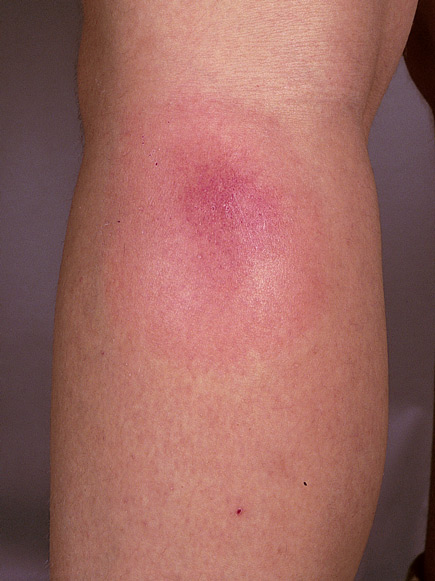New grass allergy treatment, opioid overdose solution
This update covers approval of an allergen extract to treat allergic rhinitis induced by grass pollen and of a handheld injector of naloxone for emergency treatment of known or suspected opioid overdose.
Recalls, warnings and label changes
A recall of the FreeStyle and FreeStyle Flash blood glucose meters by Abbott because they may produce mistakenly low blood glucose results when used with Abbott FreeStyle test strips.

A recall of Alli (orlistat) 60-mg capsules by GlaxoSmithKline because some packages of the product may have been tampered with and may contain product that is not authentic.
A recall of 1 lot of Merit Medical Systems' custom procedural trays/kits containing 1% lidocaine HCl injection, 10 mg/mL, due to a confirmed customer report of visible particulate, identified as oxidized stainless steel.
A recall of certain lots of the Hemostat Dual Channel Plum Set by Hospira due to the risk of over-delivery of blood products. If the Plum infusion pump is used, the blood product will be delivered at its intended dosage, but if the set is removed from the pump and used in a gravity infusion, over-delivery may occur.
A recall of 3 lots of VPRIV (velaglucerase alfa for injection) by Shire Pharmaceuticals due to the presence of visible particulate matter, identified as stainless steel and barium sulfate.
A clarified warning about pediatric use of sildenafil (Revatio) for pulmonary arterial hypertension (PAH). The drug is FDA-approved only to treat PAH in adults, and in 2012 the agency added a warning stating that use is not recommended in children. However, the agency now says that there may be situations in which the benefit-risk profile may be acceptable in individual children, so clinicians must consider whether the benefits of treatment with the drug are likely to outweigh its potential risks for each patient.
A recall of the PS500 Power Supply for Evita V500 and Babylog VN500 ventilators by Dräger due to an internal investigation finding that the batteries depleted much earlier than expected, although the battery indicator showed a significantly charged battery.
Approvals
An allergen extract (Oralair) to treat to treat allergic rhinitis induced by grass pollens, with or without conjunctivitis. The once-daily sublingual tablet is started 4 months before grass pollen season (with a first dose is taken in the office, with the patient observed for at least 30 minutes for potential adverse reactions) and continued throughout the season. Approval was based on studies including 2,500 people in which the drug was associated with a 16% to 30% reduction in symptoms and the need for medications compared to placebo. The tablet contains freeze-dried extracts from the pollens of 5 grasses: Kentucky Blue Grass, Orchard, Perennial Rye, Sweet Vernal, and Timothy. It carries a boxed warning about the risk of severe allergic reactions. The most common adverse reactions were itchy ears, mouth, and tongue, as well as swelling of the mouth and throat irritation.
A hand-held auto-injector of naloxone (Evzio) for emergency treatment of known or suspected opioid overdose. Existing naloxone drugs require administration via syringe and are most commonly used by trained medical personnel, but this intramuscular or subcutaneous injection device can be used by family members or caregivers. It provides verbal instruction to the user describing how to deliver the medication. Potential users should become familiar with the device and an included trainer device. The use of the device in patients who are opioid-dependent may result in severe opioid withdrawal.
Apremilast (Otezla) to treat active psoriatic arthritis. Approval of this phosphodieasterase-4 inhibitor was based on 3 trials with 1,493 patients, which found improvements in tender and swollen joints and physical function compared to placebo. Patients taking the drug should have their weight monitored regularly, and unexplained weight loss should be evaluated. The drug was associated with an increase in depression, and the most common side effects were diarrhea, nausea, and headache.
Miltefosine (Impavido) to treat leishmaniasis in patients 12 and older. The oral medication is approved to treat the 3 main types of leishmaniasis: visceral, cutaneous, and mucosal. Approved on the fast track as an orphan drug, safety and efficacy were evaluated in 4 clinical trials including 547 treated patients. The drug carries a boxed warning about the risk of fetal harm. The most common side effects are nausea, vomiting, diarrhea, headache, decreased appetite, dizziness, abdominal pain, itching, drowsiness, and elevated levels of transaminases and creatinine.
Coagulation factor IX (recombinant), Fc fusion protein (Alprolix) for patients with hemophilia B. It is approved for prophylaxis and control of bleeding episodes and to manage bleeding during surgery. Approval was based on trial of 123 patients in which the drug demonstrated effectiveness in the prevention and treatment of bleeding episodes and during perioperative management. No safety concerns were identified.
Nucleus Hybrid L24 Cochlear Implant for adults with severe or profound sensorineural hearing loss of high-frequency sounds in both ears who can still hear low-frequency sounds with or without a hearing aid. It combines the functions of a cochlear implant and a hearing aid. In a trial of 50 patients, a majority reported statistically significant improvements in word and sentence recognition 6 months after activation. The majority of patients also had 1 or more anticipated adverse events, such as low-frequency hearing loss, tinnitus, electrode malfunction, and dizziness. Twenty-two developed profound or total low-frequency hearing loss in the implanted ear.
A new indication for topiramate (Topamax) for prophylaxis of migraine headaches in adolescents ages 12 to 17. It is the first FDA-approved drug for migraine prevention in this age group. A trial included 103 adolescents, and the most common adverse reactions were paresthesia, upper respiratory infection, anorexia, and abdominal pain. The drug may increase the risk of suicidal thoughts and behavior, as well as oral clefts in infants born to women who take it during pregnancy.
Miscellaneous
An additional extension of the expiration dates on certain lots of DuoDote atropine/pralidoxime chloride) auto-injectors manufactured by Meridian Medical Technologies was announced by the FDA. In response to a shortage of atropine, certain lots have had their expiration dates extended by up to 2 years.
To address shortages of normal saline, the FDA has given Fresenius Kabi USA permission to temporarily distribute normal saline from its manufacturing facility in Norway. The agency has inspected the facility to ensure it meets FDA standards. The initial shipments will help, but not resolve, the shortage, so the FDA continues to work closely with manufacturers on the issue.





